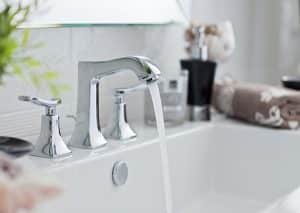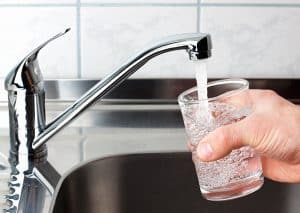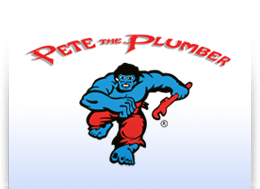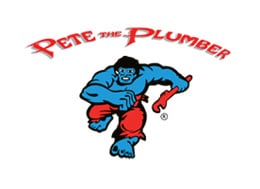 Have you noticed that, in Calgary, it is difficult to make suds in the water?
Have you noticed that, in Calgary, it is difficult to make suds in the water?
If you’re new to Calgary, you may also be surprised to see a white crystalline buildup in the showerhead and the kettle.
That’s because the water is hard.
But what does this mean, exactly, and how does it affect your plumbing?
Does it mean more maintenance work is required around the home?
What can you do about Calgary’s water hardness?
This page should answer most of your questions about hard water…
What is hard water?
Hard water is water with high mineral content.
These minerals are usually various forms of calcium or magnesium, which enter water as it percolates through limestone, chalk or gypsum rocks.
The City of Calgary applies a water hardness scale as follows:
Soft water contains less than 75mg per litre of calcium carbonate
Medium hard water contains 75-150mg per litre
Hard water contains 150-300mg per litre
Very hard water contains 300mg or more per litre
Depending on where you are located in the city and the time of year, your water is likely to have a reading of between 140 and 260mg per litre, meaning that it is mainly considered hard water.
Why does Calgary have hard water?
Calgary’s water is considered to be hard due to the high volume of calcium and magnesium that it contains.
These minerals are present in high quantities in the Bow and Elbow Rivers, from which Calgary derives most of its water.
Limestone rock dominates the area surrounding Calgary. Millions of years ago, sediments from inland seas were buried and compacted to form limestone – as witnessed by the fossils and reefs exposed in the Rocky Mountains at Canmore.
This limestone, then, dissolves into the river systems and makes the water that supplies Calgary hard.
The Bow and Elbow rivers each have different hardness levels and provide water to different areas of the city.
Interestingly, their hardness varies through the year, with the lowest levels evident during the spring snowmelt season.
Health/plumbing concerns regarding hard water
 Drinking water with a high proportion of calcium and magnesium does not cause any known adverse health effects.
Drinking water with a high proportion of calcium and magnesium does not cause any known adverse health effects.
However, hard water can be a problem for plumbing because of the build-up of calcified matter.
This can affect the performance and function of appliances such as taps, boilers, showers, dishwashers, washing machines, kettles, and so on.
For instance, hard water mineral build-up in your hot water heater may cause it to use more energy and increase your bills. The extra wear and tear it causes may potentially shorten its life too.
Hard water also reduces the effectiveness of detergents and may lead to “hard water stains”. You might also notice soap curds and hard water deposits on the bathtub.
Because it’s so hard on appliances and pipes around the home, hard water is usually treated with water softeners, which generally use salts to break down the calcified deposits. These may not be suitable for people on low-sodium diets.
How to test water hardness
There are simple at-home tests you can perform to test water hardness in Calgary – or more advanced tests are available too.
At home, fill a clear, clean, empty bottle one-third full of tap water, add a few drops of pure liquid soap and, making sure that the cap is tightly screwed on, shake it vigorously for a few seconds.
If there are few bubbles and the water appears cloudy, your water is hard.
If there are many bubbles and the water below the bubbles is clear, the water is soft.
For a more advanced test, you will need a hard water kit, which may include water test strips and a colour chart to help you identify the hardness of the water.
How to filter out hard water
Clearing the crystalline build-up associated with hard water can be a challenge. An old toothbrush and CLR cleaner will only get you so far and some places in the home are just too hard to reach for that to work.
The best way to remove scale is to attack it before it has time to build up. There are some excellent products available that help you do this which is easy to install and works very efficiently and safely.
The ultimate answer would be to install a water softener system. There are other products that can be installed to soften the water by filtering the minerals out as the water enters the home. While some of these products are more expensive, one of the benefits is that you are able to isolate the kitchen sink and the outside taps from soft water if you prefer hard water in some areas of the home.
How do water softeners work?
Water softeners can be packaged or mechanical. They use softening materials calked resins and you may know them as baking or washing soda or borax.
Packaged water softeners are added to accessible areas or particular appliances to remove the calcium and magnesium.
Mechanical water softeners are separate units that are installed in your home. They work with ion exchange, where the calcium and magnesium ions are replaced with sodium ions.
Both methods are considered very safe and the amount of sodium you take in will not expose you to any health problems. However, if you have been placed on a low-sodium diet, you may need another solution.
The effect on the environment is also minimal as softeners that work properly use salt and water efficiently.
Contact Us Today for Assistance
Don’t know where to start? Contact us if you have questions about your water softener system or looking for a system to be installed.
Frequently Asked Questions
Yes, not only does hard water require more detergent to clean effectively but it can cause spotting on cleaned items, a crusted-over heating element and reduced efficiency.
Yes, Airdrie has similar levels of water hardness to Calgary.
Yes, tap water in Calgary is treated and is perfectly safe to drink.
The best way to remove hard water stains on glass (for instance glass shower doors) is as follows:
- Use a spray bottle with a solution made up of equal parts of vinegar and water
- Spray the solution on the glass surface
- Leave the solution for at least five minutes
- Rinse with warm water
- Dry using a micro-fibre cloth
Washing your hair in hard water may leave a build-up of minerals that affect both the moisture content and its overall manageability. Many people report that showering in soft water feels better for their hair.

